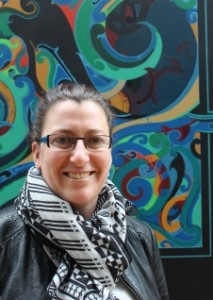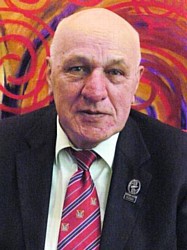Te Hau Kāinga Summer Scholarships
Are you a Māori university student? Would you like to a do a research project over summer – and get paid for it? The Te Hau Kāinga: Māori Home Front project has three summer scholarships available, starting in December. Under supervision, you can develop your own research project in your own home area, whether a historical report, a mōteatea, a video, or such like – something that you can share with your whānau and community. Or you can undertake a project with one of our partner institutions. If you’re keen and interested, read the information and get in touch! If you know of someone who might be interested, please pass this on to them.
2020/2021 Summer Scholarships
Te Hau Kāinga is a University of Otago-based research project supported by the Marsden Fund to investigate Māori experiences within New Zealand during World War Two. The project is offering three summer scholarships for 2020/2021 for Māori students in their second year or above enrolled at a New Zealand university. The purpose of the scholarships is to enable a promising student the opportunity to undertake sustained research work over the summer period.
Under the supervision of the project leaders, successful applicants will get to design their own projects and outputs, in English, i roto i te reo Māori rānei, which may include (but not be limited to) a written history, waiata, exhibition, or artwork that can be shared with whānau. Alternatively, Te Hau Kāinga can suggest a suitable research project, perhaps based in one of our partner institutions. Depending on the nature of the proposed research, successful candidates can be based anywhere within New Zealand. Summer scholarship recipients will also be involved in public initiatives designed to showcase the project to the wider community, including writing a blog post about their research.
Conditions
- Each scholarship has a value of $5,000 to be paid as a stipend in four instalments directly to the student’s nominated bank account (see details of payment dates and conditions below). Extra funding for travel or other expenses will be available if required.
- The student is expected to contribute a minimum of 400 hours (or ten weeks) to the project, starting in December.
- The approved research project will take place, exclusive of vacation time, between December 2020 and February 2021.
- All applications and associated documents must be submitted by 5pm Thursday 1 October 2020. These will include: a brief curriculum vitae (including a statement detailing any research experience to date, and contact details for two academic referees) and an academic transcript. If you have your own ideas about what you would like to research, please also attach a one-page research plan.
- The successful applicant will be a student of New Zealand Māori descent who was studying at 200 level or higher in 2020, and who will be enrolling for study at Otago or another New Zealand university in 2021. Applicants with suitable skills and a background in the humanities and/or the social sciences are eligible. Students considering enrolling in a postgraduate degree, typically an Honours, Masters or PhD programme, are especially welcome to apply.
- Summer Scholarships are not to be used to fund student research being undertaken for credit towards a degree/diploma.
- The student must not be receiving alternative scholarship support for the same project or any other project over the same timeframe. The student may hold only one Summer Scholarship in total.
- Students who currently hold a PhD or Master’s Scholarship are not eligible for a Summer Scholarship. Students with one of these scholarships and who are on a deferral over the summer period are also not eligible for a Summer Scholarship.
- The studentship will be paid by the University of Otago Scholarships Office in three instalments of $1,500 with a final $500 payment in March providing a satisfactory report on the project is received no later than 28 February 2021.
To discuss the scholarship and possible projects please contact the project leaders: info@maorihomefront.nz.
If you wish to apply, complete and submit this Te Hau Kāinga application form.
Check out the research outputs of previous summer scholarship recipients.
Connor Aston, Ngāti Ruanui (Waikato University) For Kīngi and Country: Waikato During the Second World War.
Dylan Thomas, Raukawa, Hauraki (University of Otago) Māori and Hockey: More than a Game.
Jordan Quinnell, Ngā Ruahine, Taranaki, Tūwharetoa (Massey University) [Artworks]
https://www.maorihomefront.nz/en/whanau-stories/the-trench-digger/
https://www.maorihomefront.nz/en/whanau-stories/jordans-second-image/
For further information on the Te Hau Kāinga project, please see: https://www.maorihomefront.nz/
Project Leaders: Professor Lachy Paterson,
Te Tumu: School of Māori, Pacific & Indigenous Studies
University of Otago.
Ph: 03-479-8462
Associate Professor Angela Wanhalla,
History Programme,
University of Otago.
Ph: 03-479-8462
The Otago Peninsula: A Unique Identity
 It’s wonderful to see Te Tumu’s emerging scholars getting their research out to the world. Megan Pōtiki, one of our teaching staff and also undertaking doctoral studies, has just published an article on the Otago Peninsula in Shima: The International Journal of Research on Island Cultures. The full text of the article can be accessed here.
It’s wonderful to see Te Tumu’s emerging scholars getting their research out to the world. Megan Pōtiki, one of our teaching staff and also undertaking doctoral studies, has just published an article on the Otago Peninsula in Shima: The International Journal of Research on Island Cultures. The full text of the article can be accessed here.
Ka taea te kī mō tēnei tuhinga, “Mō tātou, ā, mō kā uri, ā, muri ake nei”.
The Otago Peninsula: A Unique Identity
ABSTRACT: The Otago Peninsula on the South Island of New Zealand has a long indigenous Māori history that is rooted in the land and the people of the area. The stories and genealogy that connect Māori New Zealanders to the Otago Peninsula are well documented and retold. After European contact with and connection to the Peninsula was initiated the colonisation of the area occurred rapidly. The Otago Peninsula historically, and to the present day, has always had a separate chartacter to that of the adjascent mainland (around the city of Dunedin). Despite the short distance between them, the culture of the Otago Peninsula remains distinct to that of the mainland as if it were an island.
Two great talks coming up
This Wednesday, 1 October 2014, 5:30pm – 7:00pm in Archway 2 Lecture Theatre (This is a Public Lecture, open to all.)
The Fulbright/Te Tumu lecture by Sir Tamati Reedy (Ngāti Porou)
“Ngā Wai Whakaata o Hine-Kauorohia: The Reflecting Waters of Hine Kauorohia”
The Māori goddess Hine-kauorohia allows us to look into the stillness of her reflecting waters to see the past with clarity, gaze at ourselves in the shimmering present, and with a finger-touch, fathom a ruffled glimpse of the future.
The mauri, the life-essence, of Aotearoa New Zealand is our sense of nationhood. What is it? Who says so? I will focus on the themes of our history – Māori and Pākehā – reflecting on the hopes and promises of our partnership under the Treaty of Waitangi. I will comment especially on themes of our relationships: economic (land and people), socio-cultural (the realities of race-relations, identity and democracy), educational (the way to advantage), political (levers of power and privilege) and of course, my place as Māori in the future Aotearoa New Zealand.” – Sir Tamati Reedy
——-
Dr Jim Williams giving the Te Tumu Seminar on Wednesday 8.
To watch this LIVE, click here.
Seminar Video: Ārihi Te Nahu and the Te Waka Maori Libel Case, 1877.
Lachy Paterson “Ārihi Te Nahu & the Te Waka Maori Libel Case, 1877.”
Te Tumu Seminar Series, University of Otago, 20 August 2014.
Short Abstract: In 1876 a letter from Ārihi Te Nahu and several others was published in Te Waka Maori o Niu Tirani, the government’s Māori-language newspaper concerning the wealthy Hawkes Bay runholder, Henry Russell. Russell sued the newspaper for libel, but the case was informed by dodgy Māori land purchases, race relations, and squabbling within the Pākehā political elite. This presentation explores how the libel case came about, and its ramifications.
Seminar Video: Killing Demons and Cultural Collisions
A Te Tumu Seminar by Megan Pōtiki, 16 July 2014.
“Killing Demons” is the title of a detailed account of tapu clearing activities that occurred at Ōtākou in 1865. The diary extract was written by H.K. Taiaroa. This account is an incredible example of a collision of fundamentally different religious beliefs. Christianity and Christian prayer meets one of the significant Māori demi gods.


![Jim Williams[1]](https://blogs.otago.ac.nz/tetumuresearch/files/2014/07/Jim-Williams1-300x207.jpg)
